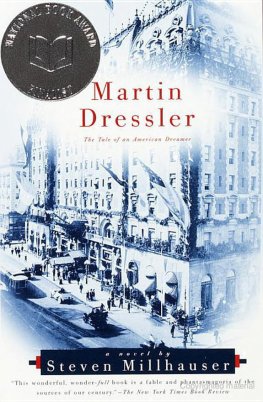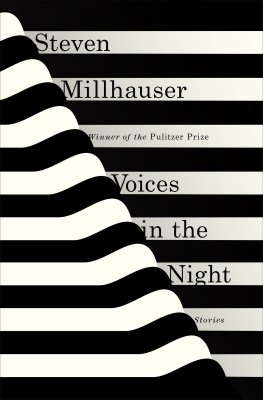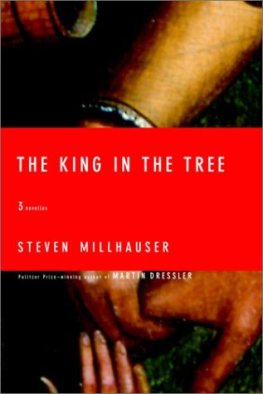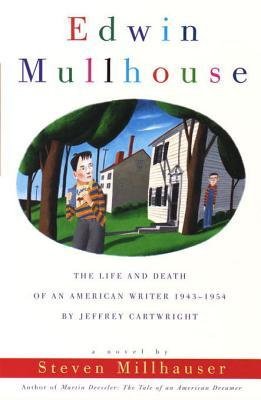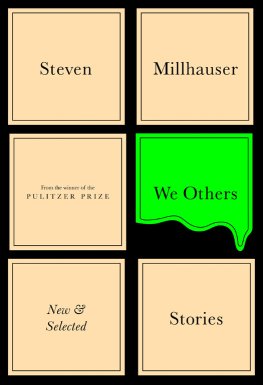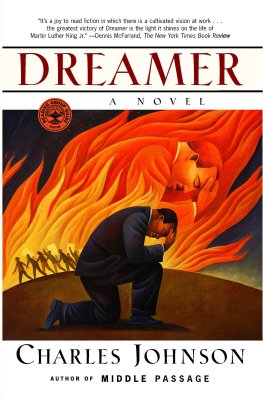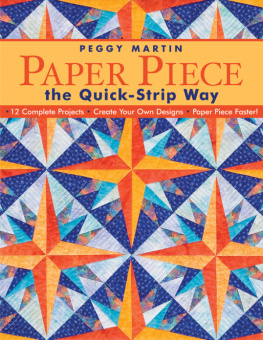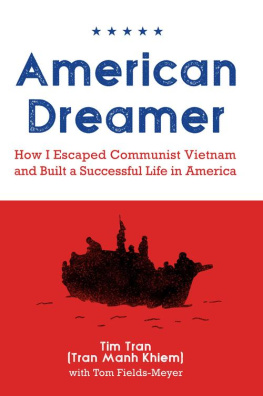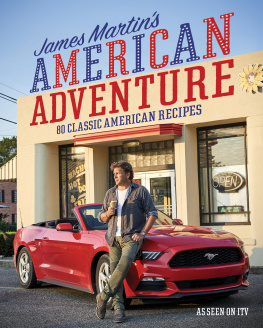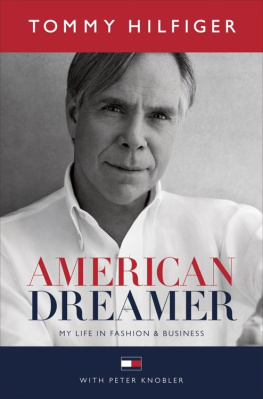Steven Millhauser
Martin Dressler: The Tale of an American Dreamer
1. Dresslers Cigars and Tobacco
THERE ONCE LIVED A MAN NAMED MARTIN Dressler, a shopkeepers son, who rose from modest beginnings to a height of dreamlike good fortune. This was toward the end of the nineteenth century, when on any streetcorner in America you might see some ordinary-looking citizen who was destined to invent a new kind of bottlecap or tin can, start a chain of five-cent stores, sell a faster and better elevator, or open a fabulous new department store with big display windows made possible by an improved process for manufacturing sheets of glass. Although Martin Dressler was a shopkeepers son, he too dreamed his dream, and at last he was lucky enough to do what few people even dare to imagine: he satisfied his hearts desire. But this is a perilous privilege, which the gods watch jealously, waiting for the flaw, the little flaw, that brings everything to ruin, in the end.
One hot morning in the summer of 1881, when Martin was nine years old, he was standing in the window of his fathers cigar store, looking out at the street. He liked the striped, shady awnings across the way, the sunshiny cobbles, the heavy bent-head drayhorse pulling a delivery wagon. He watched the sunshot ripple of muscles in the shoulders of the horse and a lady with green feathers in her hat who had stopped to look at the window of the silk and ribbon shop. A gleaming wet clump of horsedung lay steaming in the sun. Along came a jogtrotting cabhorse, the upright bouncing cabby somehow reminded Martin of a dice box and as he watched the bright enchanting world of the street, separated from his nose by a single sheet of carefully washed glass, he almost forgot why he was standing in the window. An excitement came over him, as he remembered. Already that morning he had helped his father crank down the dark green awning and wheel out old Tecumseh into the warm shade. Under the far edge of the awning he saw Tecumseh standing on the sidewalk, shading his eyes with one hand, holding in the other a bundle of wooden cigars topped by a plug of wooden tobacco. In the brown, dim store his father had walked behind the dark counter with its glass-knobbed jars of tobacco. Picking up the big key to unlock the iron cashbox, he had again given Martin permission to place the cigar tree in the window, while warning him not to disturb the row of cigar boxes on display.
In the narrow window-space Martin began walking carefully up and down among the open boxes, with the colored pictures on the inner lids, searching for a good place for his tree.
The cigar tree was a wooden rod set in a round base, with sixteen branches of twisting copper wire. From the end of each wire hung a cigar. The tree was Martins own invention, but he had borrowed the idea of a gorgeous display from the windows of the big department stores that he passed with his mother on their Sunday afternoon walk, when she put on her best dress and feathered hat to stroll along Broadway and look at the store windows. Martins mother almost never allowed him to cross Broadway, where great red or yellow omnibuses pulled by teams of two horses came clattering by; once she had seen a man hit by the wheel of an omnibus, and another time she had seen a horse lying in the middle of the street. She herself shopped at the less expensive stores on Sixth Avenue, where high in the air the Elevated tracks stretched away like a long roof with holes in it for the sun to come through. But the line of stores and hotels on their side of Broadway between the two big shady squares, Union and Madison, was almost as familiar to Martin as his own street. At Madison Square Park his mother liked to sit on a wooden bench under the trees and look up at the big seven-story hotels, before heading back to their rooms over the cigar store, where she changed into her second-best dress and went down to straighten the boxes and dust the tobacco jars while his father sat bent over the account book. It was after one of these Sunday walks that Martin had begun to think of improving the window display of his fathers store. Otto Dressler had at first refused, for he disliked anything that smacked of the frivolous or extravagant, but he had come round, as Martin knew he would, under the pressure of reasons presented in an orderly way and without excitement. Martin was especially proud of one argument: he had reasoned that the sale of even a single additional nickel cigar each week would result in increased sales revenues of two dollars and sixty cents in the course of one year, which even after subtracting the cost to the wholesaler would leave enough for three thirty-five-cent fares on the steam train from Prospect Park to Coney Island.
Although Martin liked the sunny world beyond the window, he also liked the brown dusk of the cigar store, which even in summer was lit by gaslights on the walls. He liked the neat rows of cedarwood boxes with their lines of orderly cigars packed twenty-five and fifty and one hundred to the box. His father had once taken out the cigars from a box of fifty to show him how they were stacked: there were three top rows of thirteen cigars and a bottom row of eleven, with wooden inserts to make up for the missing two cigars. Still better were the colored labels on the inside lids, showing pictures of all sorts of things: an Indian on a horse, with teepees in the background; a boy and his dog by a swimming hole; an Egyptian woman with bare breasts and a gold bracelet on her upper arm, sitting in a little white boat and trailing her fingers in flowering lily pads; a gleaming black train puffing black smoke. He liked the names of the smoking and chewing tobaccos: Bull Durham, Lone Jack, Wine-sap, Diadem of Old Virginia, Daniel Webster. He liked the dark-shiny briarwood pipes in their velvet cases, the cherrywood pipes with the bark left on them, the tall Alsatian pipes with shiny porcelain bowls and silver lids, the big-bowled meerschaums carved with faces. Then there were the boxes of chewing tobacco, plug and twist, the jars of sweet-smelling pipe tobacco with knobs on top, the cigar lighter on the counter with its tulip-shaped globe and its two alcohol burners where a customer could bend to light a cigar. His father had started out as a cigarmaker in two rooms over a mirror-frame-makers shop in an alleyway off Forsyth Street in Kleindeutschland. Otto Dressler had worked at a bench at home, using his own cutting board and knife on tobacco leaves that were prepared by strippers and delivered from the shop in pads of fifty. He showed Martin the art of rolling a cigar: you handled the leaf carefully to prevent tearing, rolled the wrapper so as to cover holes in the leaf, and used both hands to shape the cigar over the filler and binder.
Martin himself could roll a pretty fair cigar, an art he had demonstrated more than once to admiring customers. His father had both admired and disapproved of these displays, which were well done in themselves but smacked of showmanship. But Martin knew that hed won his fathers solid respect as a helper in the store. Customers who were at first amused by the well-mannered boy behind the counter were quickly impressed by the thoroughness of his knowledge of cigars, pipes, and tobacco. And he had a gift that surprised people: he could swiftly sense the temperament of a customer and make sensible, precise suggestions. He himself, he well understood, was a kind of attraction in the store; men liked him and trusted his judgment, even as they were amused and faintly disturbed by the idea of relying on Otto Dresslers youngster.
And yet, standing in the window as he adjusted one of the brass wires in his tree, Martin had to admit that in the brown peacefulness of the store he sometimes had ideas that he had to keep carefully out of sight ideas that his father, with his heavy shoulders and thick brown mustache, would have judged to be extravagant. The cigar tree itself was a much quieter version of Martins original idea, which he had known hed better keep to himself: he had imagined a window filled with elegant French dolls, all smoking cigars. When his father grew angry he never shouted but seemed to harden himself, as if he were holding in an explosion, and his voice became thin and hard; and sometimes when he was angry with Martins mother he would tell her to lower her voice, to control herself, to stop being excited. His mother, like Martin, helped out in the store, which stayed open six days a week from seven in the morning to nine at night. But in the parlor over the back of the store was an old upright piano, with a dark bench covered in wine-red brocade, where now and then his mother would sit and play Fr Elise, and a dreamy look would come over her: at the end of a phrase she would lift her hand in an odd, graceful way, and leave it suspended in the air for a moment before it seemed to wake up and then plunged down to the yellowish keys. His mother told him that she had played the piano as a girl in Darmstadt and that when she married Otto Dressler he had vowed she would have a piano: he had insisted on renting one by the week in the old neighborhood, at a time when they sometimes had only black bread for supper. Martin liked to hear his mother tell that story, for he saw that his serious father, in his own way, had a touch of the extravagant.

